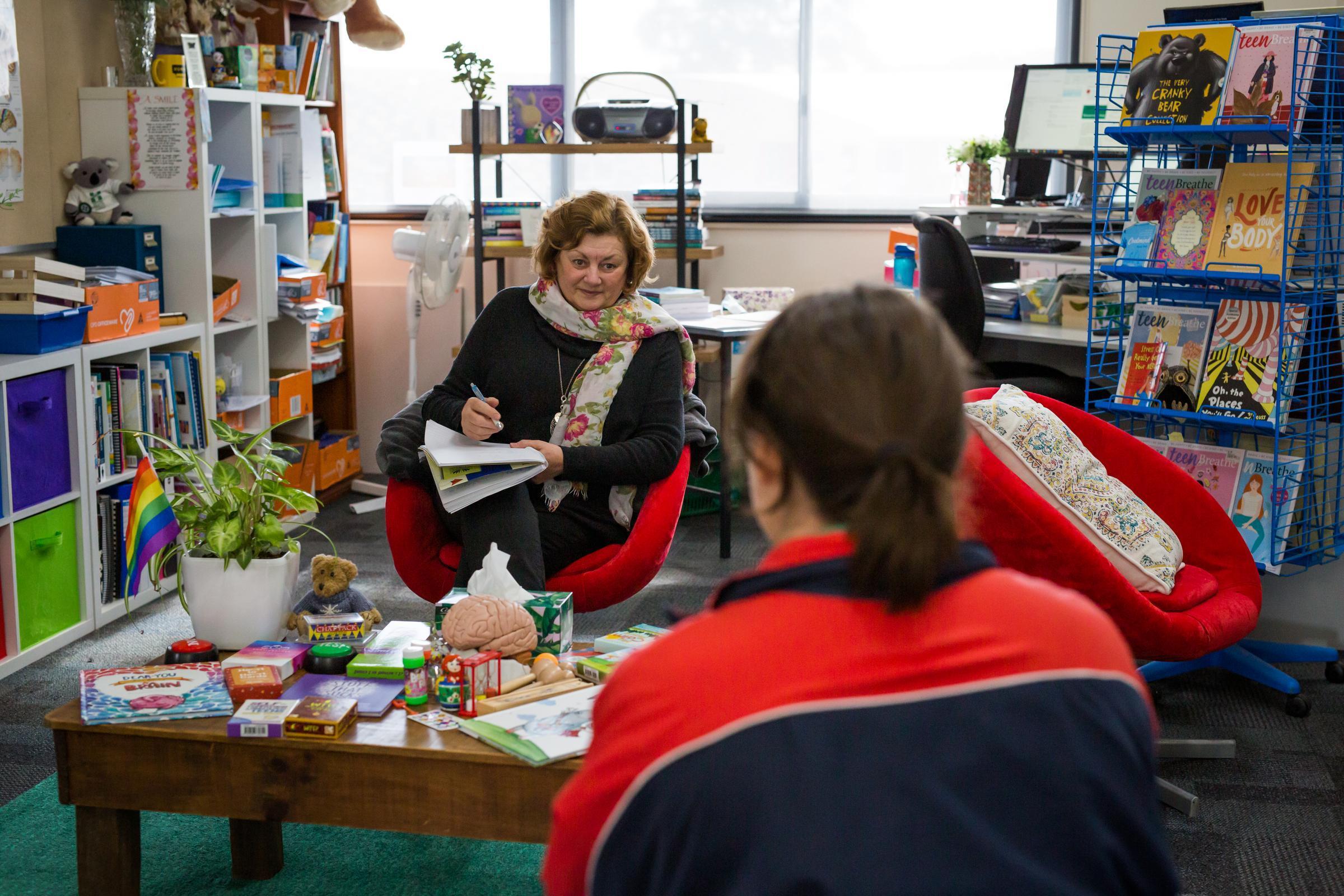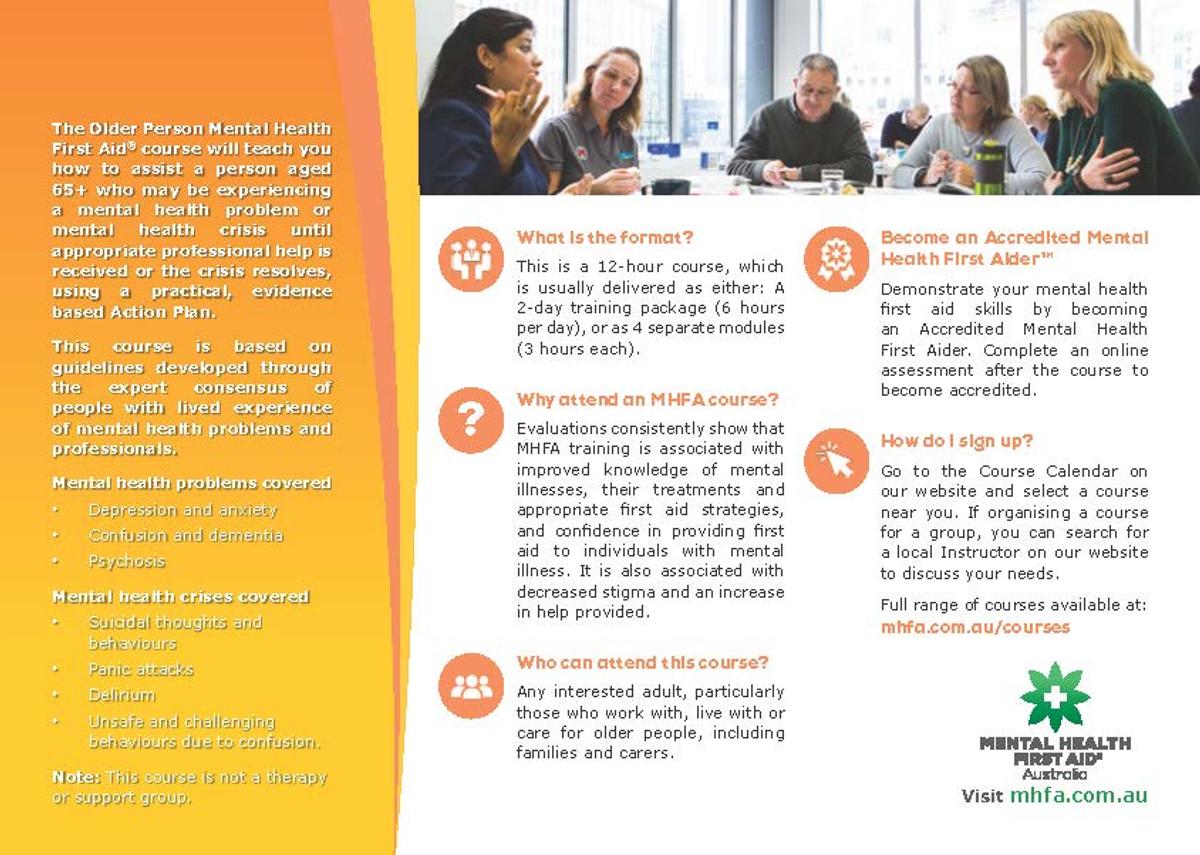From the Wellness Centre

Here we are again – on the promising cusp of a new year, a pulsing, spangled time of curiosity, engagement, vulnerability and hope.
I can’t wait to welcome students to the Wellness Centre (or in their words The Best Crib in the school) again for lunches, for chats, to practise some self-soothing activities, for support; and also I’m very much looking forward to working with GSG families around age/stage developmental phases of their young people, and the challenges which these may bring to family dynamics. Lastly the training arm of this powerhouse continues – teenMHFA training to all Year Eights and Tens is embedded in their Health Ed curriculum during Semester One, YouthMHFA courses (one actually happening now), Refresher courses, Older Persons MHFA and more training sessions around harm minimisation (Conversations about Suicide and Conversations about NSSI) will be offered and sponsored by our community and state level partners including WACHS, the WA Mental Health Commission and Palmerston.
Within our campus Peer Mediation training becomes serious as 12 of our illustrious Year Twelve Leaders continue and complete this work which we began late last year – further details below. We are currently managing the fit for this in the broader Wellbeing frame of GSG – so loads more information to come for your erudition.
Orientation Week for Year Sevens
Yesterday, I was thrilled to meet all the Year Sevens! Wow! What a stunning cohort of young people – whose courage to engage and trust in the activities and the learning we offered was inspiring. In short, the Year Sevens learned about “My Amazing (Overhelpful) Brain” and that our feelings and thoughts influence our behaviours, which can be fantastic and also can be really limiting. Furthermore, the Year Sevens now know that asking for help is a superpower that can unlock many fantastic opportunities if we have a little self-belief. And, we all learned that our amygdalae are like smoke alarms, which can be triggered even when there is really no threat to our safety. Our brains sometimes work too hard and jump to the wrong conclusion or mistakenly interpret a look, or a word. So we did some brain break activities – square breathing, ebb and flow breathing, naming and noticing, using our senses to anchor us in the moment … and such like … to calm those heightened amygdalae. The wonderful Year Sevens realise that this is the first time in their lives that they have ever done … the first day of high school. And they made it. Awesomeness. I have invited them to come visit me, to bring a friend, to chat and to hope and problem-solve together.
Sincere gratitude to Mrs Berryman and her warm and caring pastoral team for inviting me to participate in Orientation Week.
Peer Mediation
Again, I have been extremely privileged to commence training our Year Twelves in this most relevant work. I hope, like me, these wonderful Leaders are looking forward to the recommencement of training in Week Three which will continue until Week Seven. If our time together last year is any indication, then I’m in for a wonderful learning journey with this group of young people who displayed courage, trust and insight in the process. We also had some laughs and fun. The course I’ve built for our version of Peer Mediation is an amalgam of the New South Wales Govt Education and Communities Curriculum, IREX (an international non-profit organisation providing leadership and programmes which promote peace and tolerance) and Conflict Resolution in Schools from Victorian Education Department.
Some key points to understand about Peer Mediation as a form of conflict resolution: Peer Mediation is a structured process, mediators are in control of the process, the parties/disputants are in control of the outcome, the parties take responsibility for the past and future, the mediators are impartial. In short, peer mediation involves two trained students assisting other students through a structured process to reach a resolution of a conflict, misunderstanding, dispute. Also, parents might be pleased to know that there are some topics which are suitable for Peer Mediation, and others which would be referred to a Wellbeing adult.
It's worthwhile recapping the reasons that underpin my interest in broadening this training at GSG.
Peer Mediation:
- Fosters self-regulation, self-esteem, self-discipline;
- The skills are transferable to a variety of settings
- Promotes critical thinking, conflict resolution, problem-solving
- Supports youth in becoming responsible citizens
- Encourages people to change the way they negotiate – moving from positional bargaining to principled negotiation based on issues and interests
I’m very much looking forward to the time in the not-too-distant future when Peer Mediation will sit within the broader Pastoral System at GSG – where students, staff and community members recognise it as a legitimate conflict resolution, problem solving, help seeking option. GSG will have a trained cohort of interested students whose motivation for the training would be primarily around fostering pro-social behaviours across the campus and beyond. Watch this space for more details of the roll out.
Older Persons Mental Health First Aid Course in April
This brilliant 12 hours/two day course will occur during the April school holidays – Friday 5 and Sunday 7 April at Great Southern Grammar. See the brochure for further information and also email sheryl.moncur@gsg.wa.edu.au to register your participation. Again, we are being sponsored by Palmerston and WAMHC. Group numbers will be capped at 20.
teenMHFA Year Tens Term One
Paul Donaldson and his Year Ten Health Education team have devised the schedule for training this term and the introductory communications are being distributed to families, boarding houses and students this week. GSG values this course and has been developing mental health literacy and help-seeking skills using MHFA practices for nearly ten years. We start in Week Three, which I’m so looking forward to.
Counselling Support
The usual pathway to accessing counselling support at school with me is via communication with one of the child’s pastoral team – homeroom teacher or Head of House (day and/or boarding). Other options include direct contact with me and self-referral for young people who have had their sixteenth birthday.
For any families whose young people I supported in Term Four, and who request for counselling support to continue, please simply send me an email stating this. I will call you for any updates in the world of the young person prior to recommencement of counselling in 2024.
Yours in maintaining mental fitness,
Ms Sheryl Moncur | School Counsellor and Teacher

